It is highly unusual for a UK budget to give us an opportunity to significantly reduce our tax liabilities. The budget of the 30th October 2024 has done exactly this, and by following a few basic steps it is easy, for those of us who have lived outside the UK for more than 10 consecutive years, to benefit greatly.
Save UK Inheritance Tax if you live in Spain
By Barry Davys
This article is published on: 26th November 2024
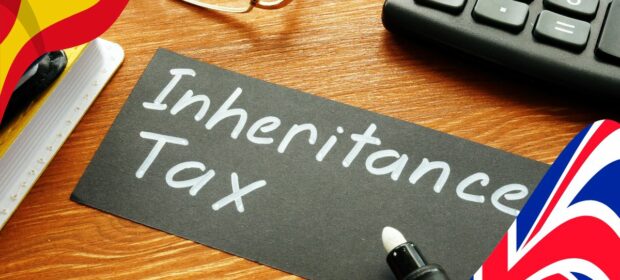
Background
The UK currently has an Inheritance Tax system where the estate of the deceased is assessed based on worldwide assets if they were considered domiciled in the UK at the time of death. The term domicile and its meaning has been the important factor to consider up to now, and in the UK has a different meaning to “resident” or “residency”.
There is no need for us to go into the definition of domicile here, as the budget has changed the basis for Inheritance Tax (IHT) assessment to a “residency” test, which has also simplified the tax system.
“Residency” Basis
If you have lived outside the UK for more than 10 consecutive years, your non UK assets will not be liable to UK IHT. The rule is as follows –
From 6 April 2025, the test to determine whether non-UK assets are within the scope of IHT will be whether an individual has been resident in the UK for at least 10 out of the last 20 tax years immediately preceding the tax year in which the chargeable event (including death) occurs.
(Editorial Note. Some other press and advisers are stating it is 10 years, not more than 10 years, outside the UK. This applies to a different tax in the Budget, not IHT).
To meet the rule it is necessary to have been out of the UK for more than 10 years, because of a Split Year rule for taxation that will also apply. Again, there is no need to go into detail here, suffice to know that we need to be out of the UK for more than 10 years in the last 20.
How beneficial is the change to “residency basis” of assessment?
The benefit will depend on our personal circumstances, where our assets are based and the value of our assets.
I have used a case study to illustrate –
Mr & Mrs Ingles
– More than 10 consecutive years out of the UK in the last 20 years
– Assets outside the UK include Spanish compliant bonds, bank accounts, QROPS pension and property, all jointly owned, as follows:
Spanish bank accounts €98,000
Spanish compliant bonds €290,000
House (mortgage free) €525,000
QROPS pension €178,000
Total €1,091,000
– UK assets £325,000 jointly owned
Mr and Mrs Ingles can return to the UK and if death occurs within 10 years of the return the following will apply.
– UK assets assessed for UK IHT fall within the UK nil rate band. Tax due £0
– Assets outside the UK not assessed under the residency basis €1,091,000
At the time of writing the exchange rate would give a value to the non UK assets as £865,814. The savings from not having these assets taxed in the UK would be £346,325.60. (£865,814 * 40%)
How to save UK IHT when living in Spain – top six tips
- Take professional advice
- Don’t move back to the UK until you have more than ten consecutive years out of the UK
- Keep your non UK investments outside of the UK outside if you qualify under the new residency test
- Consider moving excess UK funds to non UK investments. For example, ISAs are taxable in Spain and there is now merit in disposing in favour of non UK assets
- Pensions in the UK are liable to IHT from April 2027 and it is therefore doubly important to keep non UK pensions beyond the scope of IHT
- When drawing income or capital from your investments and pensions, take advice on the manner and order in which you do this, as it makes a difference to your IHT exposure and also how long your savings will last

And here is the icing on the cake
Complete more than 10 consecutive years outside the UK, return to the UK and be unfortunate enough to pass away in the next 10 years, and your estate will get the additional benefits (on top of being IHT exempt on non UK assets):
- If you and your spouse were both long term non resident, you will receive the spousal allowance – 100% IHT free transfer of your assets to your spouse if directed by your Will
- Each spouse receives an IHT allowance of £325,000 with only UK assets above this amount being taxed
- If you have a main residence and your total individual wealth is less than £2M you will get the main residence relief of £175,000
If you pass away outside of the UK and your beneficiaries are in the UK, they will pay no UK IHT if you have met the long term non resident criteria. This is because your non UK assets will not be taxed in the UK. As the UK government taxes your estate, not the beneficiary receiving the bequest, no IHT will be payable.
And because you live in Spain, your UK based beneficiaries will be assessed on residency and as they are outside Spain they will not have to pay Spanish IHT on non-Spanish assets.
Conclusion
The changes to UK IHT rules are hugely important for those of us living outside the UK. It may be possible to leave anything from tens of thousands pounds (or euros) to hundreds of thousands to our family and/or worthy causes.
There is a great deal of planning that can be completed to get the best outcome for you. It will depend on your personal circumstances. However, as a principle, it is better to start this planning sooner rather than later.
To start a conversation book a call with Barry Davys using his online system. This allows you to choose a time that is convenient for you for the call which can be either a phone or video call.
Source: HMRC, UK Gov 30th October 2024
Notes
This article is for general information purposes only. Professional tax advice must be taken before undertaking planning to benefit from changes to the UK IHT system.
The content is based on our understanding of legislation at 25th November 2024
The policy paper issued by HMRC as part of the Budget becomes law when the Act of Parliament has been passed.
You can find out more about Barry Davys of The Spectrum IFA Group and his clients by clicking Barry Davys IFA
Update on UK pensions when living in Spain
By Barry Davys
This article is published on: 4th November 2024
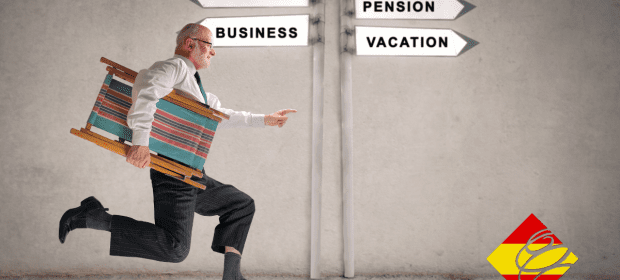
During the Brexit negotiations, many of us Brits living abroad were concerned about our fate following March 2019. Thankfully, Britain and the EU reached a solid agreement about the rumoured ‘freezing’ of the state pension after Brexit, and the result is very positive indeed – state pensions will continue to increase for those of us living in the EU.
To read the full article please click here www.telegraph.co.uk/pensions-retirement/news/britain-eu-reach-agreement-expats-state-pension-brexit/
Further to the post above about the UK State pension. Here is how helpful this agreement to increase pensions has been. All figures per week
- 2017 – £159.55
- 2018 – £164.35
- 2019 – £168.60
- 2020 – £175.20
- 2021 – £179.60
- 2022 – £185.15
- 2023 – £203.85
- 2024 – £221.20
- 2025 – Budget announcement £230.30 (has to be confirmed by Parliament)
At a time that is convenient for you
I feel sick that I am not going to the Caribbean and Patagonia…
By Barry Davys
This article is published on: 3rd May 2024

How would you feel knowing that your hard-earned savings could be earning 9.6% pa for the next 30 years but that you have opted for an alternative paying just 2% pa instead? Ok, this is quite provocative as they are two different types of savings.
According to the Schroder 30-year forecast, these could be the average annual returns on the Indian stock market and deposit accounts respectively.
So now you may be rationalising your decision to use a deposit account by saying something like “Oh well, I don’t like the stock markets and I don’t know much about India”. This is fair enough.
Your best friend has just said “We are off to the Caribbean for a few weeks and we have always wanted to go to Patagonia so we may nip across there for a bit after the Caribbean” …. “Blimey, how can you afford that?” is what you might say, or at least think.
How interesting it would be to hear “We put some of our money in shares in Indian companies and they have paid for the trip” Your average return of 2% pa may now seem pretty sickening.
Would you invest for 30 years? Maybe, maybe not. Will you be around for 30 years, depending on your current age?
And here’s a funny thing
- At age 50 your average life expectancy is 82 for men and 87 for women
- At age 60 your average life expectancy is 83 for men and 87 for women
There’s more
- At age 70 your average life expectancy is 85 for men and 89 for women
- At age 80 your average life expectancy is 89 for men and 91 for women
- At age 90 your average life expectancy is 94 for men and 95 for women
The older we get the more our life expectancy increases. All of this means that you could well be around for 30 years or more if you are under the age of 60. You do not however have to have a 30-year investment time horizon. The minimum period we would suggest is five years but after that there is flexibility with timing.
It is not always easy to choose your savings but here is how we help with guidance:
- Leave money aside for an emergency fund (yes, in that deposit account)
- Complete a reliable risk assessment exercise to determine your attitude towards risk
- Show you different combinations of investments around your personal risk profile and discuss the options with you
- Never put all your money in one type of investment eg not all in a deposit account
- Review your attitude to risk regularly because it changes as your circumstances change
- Adjust your investments when required to ensure you are taking the appropriate level of risk for your circumstances
Which of the following applies to your situation?
- Have too much money in bank accounts?
- Have recently received an inheritance?
- Are selling a business or have share options about to vest?
- Have losses on your current portfolio?
- Do not review your risk profile and investments at least annually?
If the answer is yes to any of these questions, please feel free to arrange a call with me using my online system to book a time that is convenient for you.
It is an opportunity to get a better outcome from your savings, provide for your family, and help give yourself a sustainable income in retirement.
Undoubtedly, you will be more relaxed too knowing that you have the right risk profile for your savings and that it is updated annually.
What does a stockmarket fall of 36% mean?
By Barry Davys
This article is published on: 11th April 2024

It means your savings need to be organised before it happens
On 16th October 1987, the stock market in the UK fell 14%. By mid-November it was down 36%. It is for this reason you should keep reading.
The share price falls were across the board and good companies fell with the less successful. It was an arbitrary general fall in the FTSE 100 index. It seemed like a very risky time to be investing.
One of these falling shares was M & S. Yet to me it was ridiculous that M & S had been devalued by 36% when the business was in good shape and with prospects for ongoing growth.
I saw an opportunity to invest in the FTSE 100 index as I felt sure the better companies would be re-valued to reflect their sales and prospects. I knew that this was an opportunity to invest in my future, (not to try to make a quick buck).
Some of my clients also put part of their savings in the FTSE 100 index. Many did not. By August 1989 the index had recovered all of its lost ground. By 17th November 1997, it had gone up by 100% and is now 378% higher than it was in October 1987.
“Investing is the intersection of economics and psychology”
Seth Klarman – portfolio manager and billionaire
This is what I learned from those people who did not invest and which I now use to help people look after their savings. I now understand why those other people did not invest. The reason they didn’t is that I had not discussed, in detail, on a one to one basis, the following –
- Their Attitude to Risk
- The timeframe of their investments
- Their capacity for loss
I arguably let those people down as their savings did less well than the people who did invest.
Having learned a lesson from the experience my clients now benefit from this insight.
It is important not to take too much risk, which I understand. But it is also important to take at least some risk, if your circumstances allow it.
It is important to avoid taking no risks. Indeed, I often hear people say “I want to be Cautious” or “It needs to be safe” and they have left money in the bank earning very little and certainly not keeping up with inflation.
If you think putting money in the bank is low risk, you could be right.
However, taking no risk/low risk can be the biggest risk of all and in the worst case an absolute certainty that your money will not keep up with inflation in the long term and you might not enjoy the retirement you had planned.
The risk of not keeping up with inflation, with not building up your savings, is you end up with a pot too small to provide a sustainable income in retirement. But with the right advice and the correct level of risk for you and your circumstances your sustainable income in retirement is much more likely.

Here are the things I consider when helping you judge the balance of risk versus the growth of your savings. A simple online questionnaire allows you to answer questionnaires to give you a suggested risk profile.
However, we do not leave it entirely to a computer to decide your future. I then discuss the suggested profile, answer your questions, double-check the suggested profile with you, and make any recommendations for improvement based on my 36 years of experience. A good blend of AI (artificial intelligence) and EI (experience intelligence).
What does this mean in practice and why trust me? Here is the outcome that clients get from the correct risk profile:
- Bank accounts – needed to manage day-by-day spending and, separately, for an emergency fund for those unexpected bills
- Always manage the tax aspect of your savings
- Balancing flexibility with longer-term savings
- Separate savings pot for different purposes. Why? If you wish to assist children with buying their house(s) and also want to manage your savings to provide an income in retirement, these aims are different and can therefore benefit from different risk approaches. Helping the children is a one-off event (per child) and is likely to come before your need for retirement income. The need for income in retirement can span 30 or 40 years, from when you stop work to when you pass away
- In each saving pot, we make sure you have a globally diversified portfolio set of assets
- Sometimes premium bonds are used for an emergency fund
- Update your risk profile annually because your circumstances and requirements may change. If so, this may suggest an update to your savings pots which can keep you on track
Here’s why you should trust yourself. Inflation will go up and down but the world’s demographic is changing. Fewer workers mean higher wages and lower state pensions. These things point to higher inflation in the future. Getting the risk balance right on your savings is not a “nice to do”, it is essential. You need to trust that, with the right support, you can improve the likelihood of healthy savings.

Do any of the following apply to your situation ?
-
- Have too much money in bank accounts
- Have recently received an inheritance
- Are selling a business or have share options about to vest
- Have losses on your current portfolio
- Do not review your risk profile annually
If yes, arrange a call with me using my online system to book a time that is convenient for you.
It is an opportunity to get a better outcome from your savings, provide for your family, and help give yourself a sustainable income in retirement. Undoubtedly, you will be more relaxed too knowing that you have the right risk profile for your savings and that it is updated annually.
Do you need to submit a Modelo 720?
By Barry Davys
This article is published on: 16th January 2024
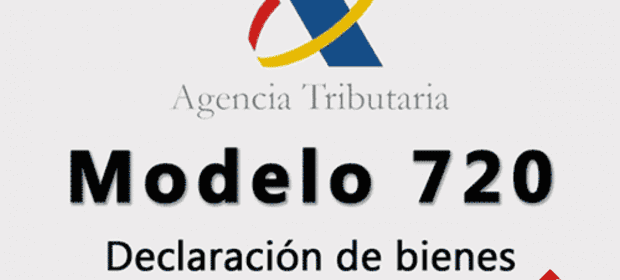
Do you need to submit your M720 to the Hacienda before 31st March?
If you have assets outside of Spain you may need to report these to the Spanish tax man on the Modelo 720. In effect it is a “census” as it does not trigger any payment of tax. However, it does help the Hacienda cross check information.
If you have bought or sold an overseas asset in the last calendar year, you may need to submit a M720, even if you have previously submitted a form. Also, if the value of your overseas assets have increased by more than 20,000€ since you last submitted a form you may also need to re-submit. If the answer is “Yes” you must submit your form before the 31st March.
Here is a link to the obligation to report on the Agencia Tributaria (Hacienda) website which lays out if you need to report your bank accounts, investments and properties that are outside of Spain. Google Translate does a good job of translating this, if needed.
You may have seen in the press that the European Court ruled on the M720 rules. I am pleased to report that the fines for non-reporting or mis-reporting have been struck out by the court and new, much lower, fines will be put in place.
Please note that we are seeing articles saying the M720 is no more. This is not the case. In fact the court, whilst removing the very high fines, also said in it’s ruling that they could see the need for the M720.
Please feel welcome to email me if you have any queries about your Modelo 720. If your query relates to share options and the M720 you can choose a time that is convenient tor you for a call using my online system.
I have received an inheritance. What now?
By Barry Davys
This article is published on: 31st July 2023

I acknowledge the feelings that come with the death of a relative, but this article is not about the grieving process.
The article describes how to deal with an inheritance and so will start from the point when you learn how much your inheritance (bequest) is going to be.
Oh wow, that will be helpful/very nice! I didn’t expect that much! What a lovely surprise!
These very common responses on finding you are about to benefit in a Will are shortly followed by “What should we do with it?” or “Let’s buy a holiday home/new car/go on a cruise/ give money to the kids etc.” It is unusual for me to find a reaction in between these two different approaches to receiving a bequest.
My experience of working with people who have received inheritances gives me insight into what things are important to consider. Some of these people have worked with me on inheritance tax planning before the death of the relative. This does not mean planning immediately before the death but sometimes years in advance. This type of planning is the subject of another article.
Typically though, as recipients we focus on the amount that we are getting in isolation and make our decisions based simply upon the amount we receive.
This approach often leads to buyers’ regret, defined in the dictionary as:
‘A sense of regret or uneasiness often after having purchased a house, car, or other major item, especially when the acquisition involves an ongoing financial burden.’
A new car comes with ongoing expenses: insurance premiums for a newer or bigger car can be higher, maintenance costs greater. Similar issues occur for a holiday home. Here is an analysis of the true cost of buying a house
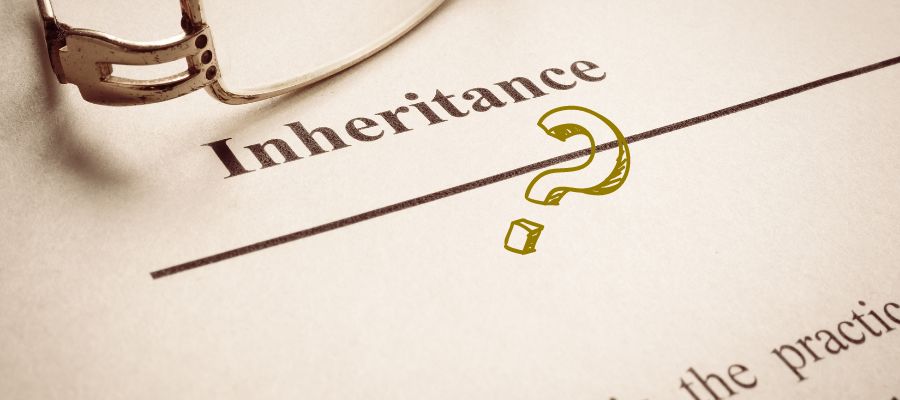
Here are some very important steps to ensure you avoid the buyers’ regret syndrome and form a process on how to make the best of your good fortune.
Check your answers to these questions:
- Am I thinking “What would Dad/Mum have wanted me to do with the money, what can I spend it on?” Or am I thinking “What would be the best use of the money for my family”?
- The money is now mine. Have I accepted yet that I am now responsible for looking after it?
- Can I write a list of how to improve my family situation with my money?
- What type of an investor am I?
- If I want to be cautious, what does that really mean in practical terms? How would I choose savings that are “safe”?
- Will I be glad when it is all over, put away somewhere safe and I don’t have to worry about it anymore?
- Will I be able to leave an inheritance to my family?
These questions help us take the focus away from how much you have received to how it will benefit your family and improve your quality of life. Why is this important? Unlike an annual bonus or a job with a higher salary, receiving an inheritance from the deceased relative will happen just once from that relative. Often the relative, when deciding to leave you something, will have been thinking “I hope this will benefit the family and make their life a little easier”.

How to deal with an inheritance – a step by step process
How you approach the issue of what to do with an inheritance should depend on your financial position before the inheritance.
How can you fit the inheritance into your finances so it gives ongoing benefit?
The process:
- List your debts
Whether you should you pay off your debts depends on the interest rate of each debt. One certainty is that if you have a Spanish mortgage with a fixed rate of interest at 1% for 10, 20 or 30 years you should not pay off this debt. Please contact me for an explanation of the returns on your savings and how this mortgage fights against inflation to your benefit, along with a full description of how this works. - List your future expenditure e.g. school or university fees
If you have a use for the money at a set date, savings should be designed to meet that need. Bitcoin etc is not going to give you the certainty that the money is there when you need it. - How much emergency fund do you already have in the bank?
An emergency fund should typically be enough for six months of expenditure. Top up your emergency fund if necessary. - Do I need the money to grow or do I need it to provide an income?
If you wish to bolster your pension when you get to retirement, it may need to grow now and provide an income at retirement. If you wish to leave money to your family, you may wish take the income or profit from your savings and to leave the capital ready to pass on. - Where are my existing savings and investments?
Often I see people doubling up on a particular investment, often by accident. One fund may, for example, hold lots of Tesla shares already. If so, you might not want to buy lots of Tesla shares with your inheritance. Why not? By concentrating your investments like this you increase your exposure to risk. - Look to pay for gifts or toys such as new golf clubs from the income not the capital
I have helped many clients over the years preserve their inheritance with this approach. In addition to the toys, I have structured donations to charity too. - Analyse your options
What type of savings match my risk profile and how do I make them tax efficient? - Then do what you have decided to do
It is surprisingly common for people to still have an inheritance some years after they have received it. Not being an expert or experienced in savings and investments and tax they end up doing nothing out of fear of doing something wrong. Whilst this is understandable, the real value of the inheritance is eaten away by inflation with a “do nothing” approach.
Thoughtful, considered planning is how I approach a request to help with an inheritance. A step by step approach is best using the process above. By using cashflow modelling software I can show you what your financial future looks like now you have the new money. The software also allows you to explore different options and compare the possible outcomes. This “what if“ analysis is one of the most useful parts of the planning process. Assessing the best planning for Spanish and/or UK tax is a speciality of my advice.
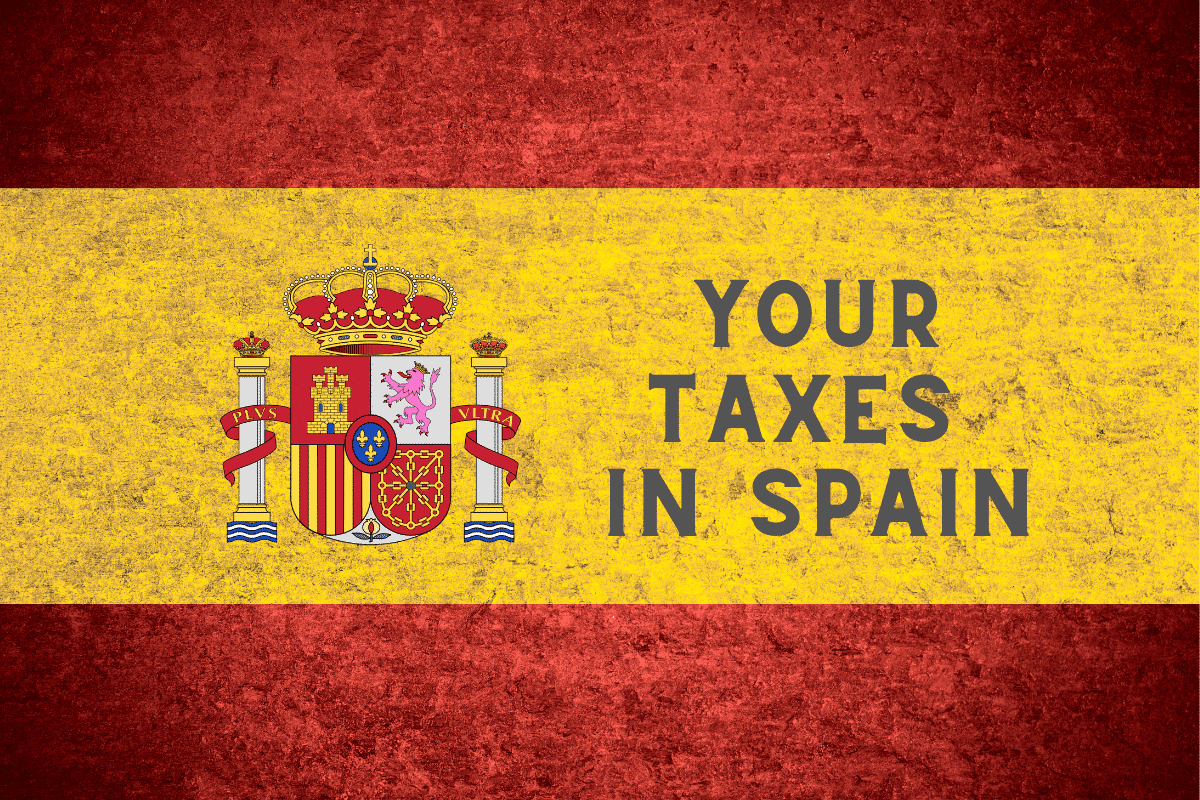
Special Spanish tax items
There are specific reporting requirements about your inheritance in Spain, even if you have paid inheritance tax in the UK or Ireland.
This report must be made within six months from the date of death.
If you receive an inheritance in your name and then decide to do something with the money in joint names, there is gift tax to pay in Spain. A typical trap is buying a property in joint names with the inheritance only to find out there is gift tax on half the value of the house.
What next and how to make the best of having received the money?
You can book a call with Barry Davys of The Spectrum IFA Group who specialises in advising on how to manage the inheritance. Please choose a time that is convenient for you on his online system
He has dealt with many such situations in both the UK and in Spain. He brings understanding of the circumstances and respect of your wishes inside a framework of professional advice.
He often acts with lawyers who are settling an estate. The lawyer works on the process of settling the estate whilst Barry is forward looking and works on the planning for the future.
Barry will personally get in touch with you within the next five days. Any call or communication will be in confidence.
Use your inheritance you have received for your future
By Barry Davys
This article is published on: 30th July 2023

Travel broadens the mind, and the investment portfolio
Have you ever been to India for work or to travel?
I haven’t but my partner went for work and my daughter for travel. Some seven other friends have also travelled and all have reported the same way. It is a great place, still lots of improvements to be made, but the people work hard and are generally friendly.
With a current population estimated at 1.46 billion (now larger than China’s), India accounts for around 18% of the world’s total population.
If you were running a business with:
- 18% of the world’s population in your home market
- English being spoken well by a good proportion of the population and with English language ability providing valuable access to international markets
- skilled and hard working employees
Would you be mildly optimistic about your outlook? Of course, you would have to deal with the day to day issues of logistics, marketing, financing etc but even so, you might still be mildly optimistic.
The story is only just beginning. Yours and my parts of this story come at the end of this article. Read on.
The IMF, World Bank and Goldman Sachs are all optimistic about the country’s outlook. India is currently the fifth largest country by size of economy. However, by 2050 Goldman estimates it will be the third largest in the world. Sounds good but when you examine the numbers it really is impressive.
In 2022 the Indian economy was valued at $3.385 trillion. Goldman expects the economy to be $22.2 trillion by 2050. By 2075 it is anticipated it will be $52.5 trillion, making it the second largest economy in the World.
To give some context, the economic output (GDP) of some other countries in 2075 are estimated to be:
- USA $51.5 trillion
- Japan $7.5 trillion
- UK $7.6 trillion
- Germany $8.1 trillion

Your involvement in the story
Sounds good but what has this got to do with me?
If you are about to receive or have received an inheritance at, as an example, age 50, it is likely that you will live around 40 years. This change in India to 2050 will take place in your lifetime.
If you have children, and especially with grandchildren, this change in India to 2075 will take place in their lifetimes.
I am not an investment manager but am able to arrange for discretionary fund managers (DFMs) to run investment portfolios on behalf of my clients. I direct the DFM to invest in a manner that fits both with your attitude to risk and your longer-term planning objectives. This includes your requirements for income and inheritance tax planning for your family.
I am forward looking. This story of India is not a recommendation to invest in India. It does illustrate however that if this economic expansion is expected to develop over your lifetime, we could ask the DFM to consider including at least some Indian exposure in your portfolio.
If you wish to look to the future, book an appointment for an initial call with Barry Davys at a time that is convenient for you, using his online system at Receiving an Inheritance – What Now
Should I buy a property with the Inheritance I have just received?
By Barry Davys
This article is published on: 29th July 2023

The true story may surprise you?
There are some spectacular homes in Catalonia and there are many properties which are bought for rental as an investment.
If you are coming from a home owning country such as the UK (63% homeowners in 2020)¹ or Romania (a remarkable 92.9% homeowners in 2021)², it is only natural to think of property as a good idea. We may have experienced significant gains on a property and we probably know others who have done so. Most of these cases will be people who have bought their property as a home. We may have also seen the headlines about the “Buy to Let” boom in the UK. Bear in mind the boom was helped by very, very low interest rates which are most unlikely to be repeated.
Now we are seeing headlines such as ‘Lots of us are very anxious’: why Britain’s buy-to-let landlords are selling³. A reminder that like most investment markets the value of your investment can go down as well as up.
Investing in property can be effective. It should be considered like any other investment and not with the bias in our decision making that can come with having been brought up in a home owning country.
Here we help you to view an investment in property in Catalonia with data.
The first item to understand is that there is a property purchase tax of 10% of the purchase price. Other costs, such as lawyers and notary fees, are typically total 2% of the purchase price. This is an assessment of the impact of costs and taxes and what it can do to your investment return.
¹www.gov.uk – Home ownership
²European Union (Euro Stat) Home or Flat – Owning or renting
³Guardian newspaper 24/02/2023
| The true cost of a house for renting in Spain | Return on investment | ||||
|---|---|---|---|---|---|
| % | % | % | |||
| Purchase tax | 10.00 | Annual yield Barcelona | 5.7 | ||
| Lawyers, notary etc | 2.00 | Less | |||
| Property registration fee | 1.5 | Tax at say 33.8% of 5.7% | 1.93 | ||
| IBI (council tax) | 0.6 | ||||
| Landlord insurance | 0.5 | ||||
| Total cost of buying | 13.50 | Community charge | 0.3 | ||
| Furnishings and white goods | 0.75 | Total ongoing costs | 3.33 | ||
| Total Costs | 14.25 | Annual Net Return | 2.37 | ||
| Number of years to recover cost of purchase | Total Costs ➗ Annual Net Return | = | 6.01 |
In summary, total acquisition costs are typically 14.25% of the purchase price. The buyer has to have this amount of cash in addition to any deposit as the mortgage is based on the value of the property.
The rental property rate of return (yield) is shown for Barcelona. Anywhere outside of Barcelona will likely give you a lower rate of return.
Annual net returns after ongoing taxation of property tax (IBI) and income tax (rental income is added to employment income). The example uses a tax rate of 33.8% income tax on your rental but the top rate of income tax in Catalonia has recently risen to 50%.
This means it will take you just over 6 years to cover your costs from rental income.
Of course, with a bit of luck, the property will increase in value. There is an oft repeated mantra that “Oh but the property will increase in value”. It may well do, especially if you keep the property for many years. However, here are some other points to be aware of before buying a rental property for profit.
- You benefit from the increase in value when you sell the property
- Yet the true benefit is only the increase in value above inflation; not the difference in buying price and selling price but only the bit of profit above the revised value caused by inflation
- Capital gains tax is payable on the increase in buy to let property value, even if you are over 65. Inflation is not taken into account by the tax man so you pay tax on the full difference between buying and selling
- Capital gains tax in Catalonia is between 19% and 26%
- Estate agent fees in Catalonia are typically 5% of the sale price
- A further tax is called Plus Valor. Raised by the local council the tax is based on the increase of the value of the land that the property is built on. This applies to freehold properties too
- The property is part of the assessment for Inheritance Tax in Catalonia even if you return to the UK or your home country
Property investment works best when expectations and reality are matched. Knowing realistic figures, based on data, is very important. We hope that this article provides some insight and helps you with your assessment of whether it is right for you.
Are there alternatives? There are and one or two that are very tax efficient. In some cases a combination of property and other investments can work well.
For more information on these elements of investing in property in Catalonia you can book a call with the author Barry Davys. Please use his online system so you can choose a time that is convenient for you for the call. The call can be a video call or a telephone call.
0% tax when selling your UK business
By Barry Davys
This article is published on: 20th July 2023

How you structure the sale of a business is always important. And never more so when you make an opportunity to move to Spain and then sell your business. Spain has a scheme to attract foreign workers, professionals and entrepreneurs with tax incentives.
This scheme can lead to 0% tax on the sale.
So unsurprisingly, moving to Spain is becoming an increasingly popular option.
Before inviting you to discuss the scheme, it is important to show how I help business people in this situation with their wealth planning. In addition to the 0% tax scheme there is greater depth to the planning. Will you live happily ever after? Well let’s see.
Selling a business is often a life changer. You have more time. You are not with the same people that you have been with for, in some cases, years. You suddenly have a large bank balance. And you spend time wondering what comes next in life?
I cannot help with the “what comes next?” question but I do help people get their affairs in good order so they can move forward.
My experience of working with people who have sold a business gives me insight into what things are important financially after a sale. Having sold a business myself I also have an understanding of the feelings that appear after the sale about the new found wealth.
The bank balance
The warm feeling that comes with looking at a new, very much bigger than normal, bank balance is great. It is a sense of achievement and reward for all the work you put into building your business and sacrifices you made along the way.
This feeling makes us focus on the figure on the bank statement. However, if we have sold at 55, with average life expectancy, we could live for another 30 years; longer if you are a woman. Life expectancy, as a result of medical advances, means we might well live even longer.
The secret to dealing with this bank balance focus is to check your answers to these questions:
- Have I just lost my salary?
- Have I just lost my dividends?
- Do I want to work anymore?
- How much do I need to live on if I don’t work?
- Will I run out of money?
These questions help us take the focus away from the big, juicy bank balance to the reality of providing an income for the next 30 years.
Question five may seem a strange question having just received a payment for the sale. It is actually an important one. The large bank balance typically tends to lead to big purchases; a car for husband and wife, a new house, helping or buying a house for children, a boat, gifts to other members of the family etc.

All these purchases and gifts have one thing in common. Not one of them produces an income!
Another common action is to invest in another business. I have seen time and time again, and I have been guilty of this myself, of investing in a company in a completely different sector, or perhaps B2C when your business was B2B. It can be a very expensive mistake to think “I know about business/marketing/retailing/manufacturing” etc and then investing in a different type of business.
What made our business successful was our ingrained experience of our sector and market, our knowledge of our suppliers and competitors and our customer needs. Moving to a different type of business for investment can render all that experience irrelevant. The assessment of the investment opportunity can be skewed by thinking we can rely on our experience.
So what should we do?
Post sale action
Secure your income first and then buy the toys, make further investments and make the gifts. But how do you do that when the future is unknown? By using some of the very best cash flow modelling software it is possible to show you. With inputs that are specific to you. With real data on portfolio performance including what happened during the financial crisis and the pandemic. Graphical output shows in real terms how to generate your income and what you could spend on other things.
For more information on how the modelling can work for you, book a call, in confidence, with the author Barry Davys, The Spectrum IFA Group, at a time that is convenient for you on his online system.
The earn out
I often hear people who are selling say “and I am due a further sum of X in Y years”. It is considered as the ‘cherry on the top’ part of the deal even when it is contingent on hitting a future target. We can’t help but include it in our “How much am I worth?” calculations in our head, even though it is contingent on a target that we have no control over (loss of control is a function of selling the business).
The modelling helps with this issue too. A model with zero return from an earn out period in a contract allows you to plan with the resources you have available now. A second model is provided showing receipt of the further payment when it becomes clear the payment will be made. This second model can account for any and all of the following:
- Earn out period
- Retained shareholdings
- Loan notes
- Tax rebates
Your pension
As we have been building the business we may have thought of pension contributions as a way of managing corporation tax, personal income tax or both. The pension pot itself is generally viewed as ensuring you have a comfortable retirement.
Now you have (or will have) a larger amount of wealth outside your pension it can be very beneficial to use this non pension wealth to provide your income in retirement. Firstly, it is possible in Spain to provide you with an income with a lower tax rate than applies to a pension. This gives you income that lasts longer into your retirement, allows you to have a better standard of living, or both!
Your pension pot then becomes one of the most effective IHT planning tools at your disposal and it is already under your control.
Inheritance tax in Spain
Inheritance tax in Spain is less about where you are living and more about your connection to the UK and also where your children live. Connection to the UK because even if we leave the UK a long time before death, we are generally considered to be “Domiciled” in the UK. Domiciled has a specific definition in the UK allowing HMRC to claim inheritance tax from an estate no matter where you die
Where you children live is important because they are the taxable entity, not your estate, for inheritance tax in Spain.
The importance of inheritance tax planning increases significantly after the sale of a business. It may be that you have previously qualified for family business exemptions on inheritance tax in both Spain and the UK. This was granted based on your shareholding in the company. Now the business has been sold, the exemption disappears.
Relatively simple planning can give outstanding results in reducing the amount of inheritance tax due in Spain.
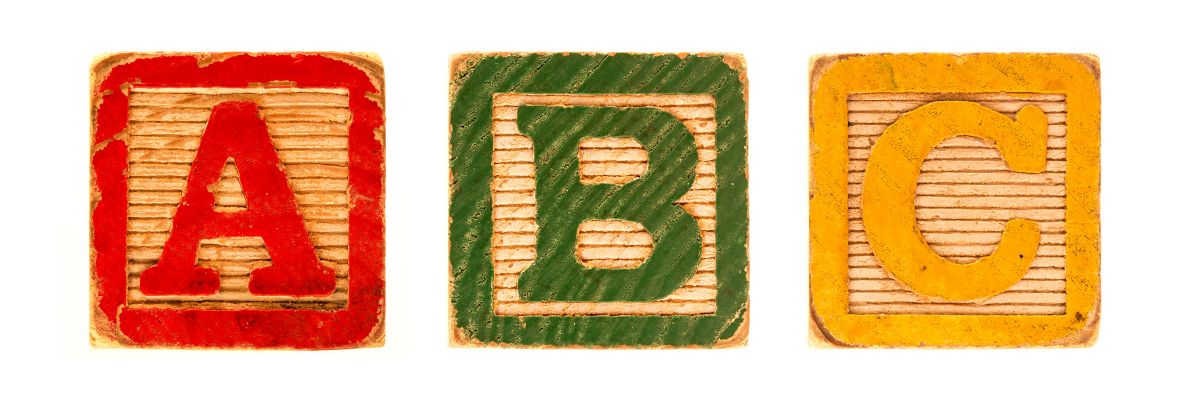
Don’t forget the basics
Our feeling of abundance pushes the basics from our mind. However, there are a few basics that we should attend to post sale and which we will then not have to worry about again. This attention often means tax savings and reduction in expenditure.
Life Assurance
Have you had life assurance provided by your business? Has that now disappeared? Do you still need life assurance if you now have a large capital sum? Do you have life cover taken out in your personal name?
When advising people on the post sale process these are the sorts of questions we address. In one recent post sale example my advice saved a husband and wife £400,000 EACH in potential inheritance tax.
Private medical insurance and income protection insurance
Were either of these insurances paid for by your company? Do you need to replace or update an existing policy and especially so when you move to Spain?
Income protection insurance will pay you an income if you cannot work. However, with the loss of earnings as a result of the sale these types of policies become void. The good news is that by addressing the income issue first in your planning, you are already meeting the need for income. The policy is no longer needed and so there is a cost saving from not having to pay the insurance company a premium.
Where next?
It is especially important that planning post a sale is broad enough to look at your overall situation and not be focussed just on the 0% tax or how to invest the sale proceeds. People have also found that continuing advice brings better outcomes for the family and ongoing piece of mind.
Of course, the 0% tax is very important and so I discuss this as part of the planning of the sale of your UK business in detail. To arrange a meeting or call please use this link to choose a time that is convenient for you to find out more about the 0% tax scheme and wealth management for you and your family.
However, perhaps you’re not interested in a holistic financial approach. If you believe investing is just about picking the right stocks or funds and have no interest in considering your complete financial picture – including tax strategies, estate planning, retirement goals, and risk management – I must admit, my comprehensive approach won’t be your cup of tea.”
Barry Davys MBA Dip PFS
Partner, Spectrum IFA Group




